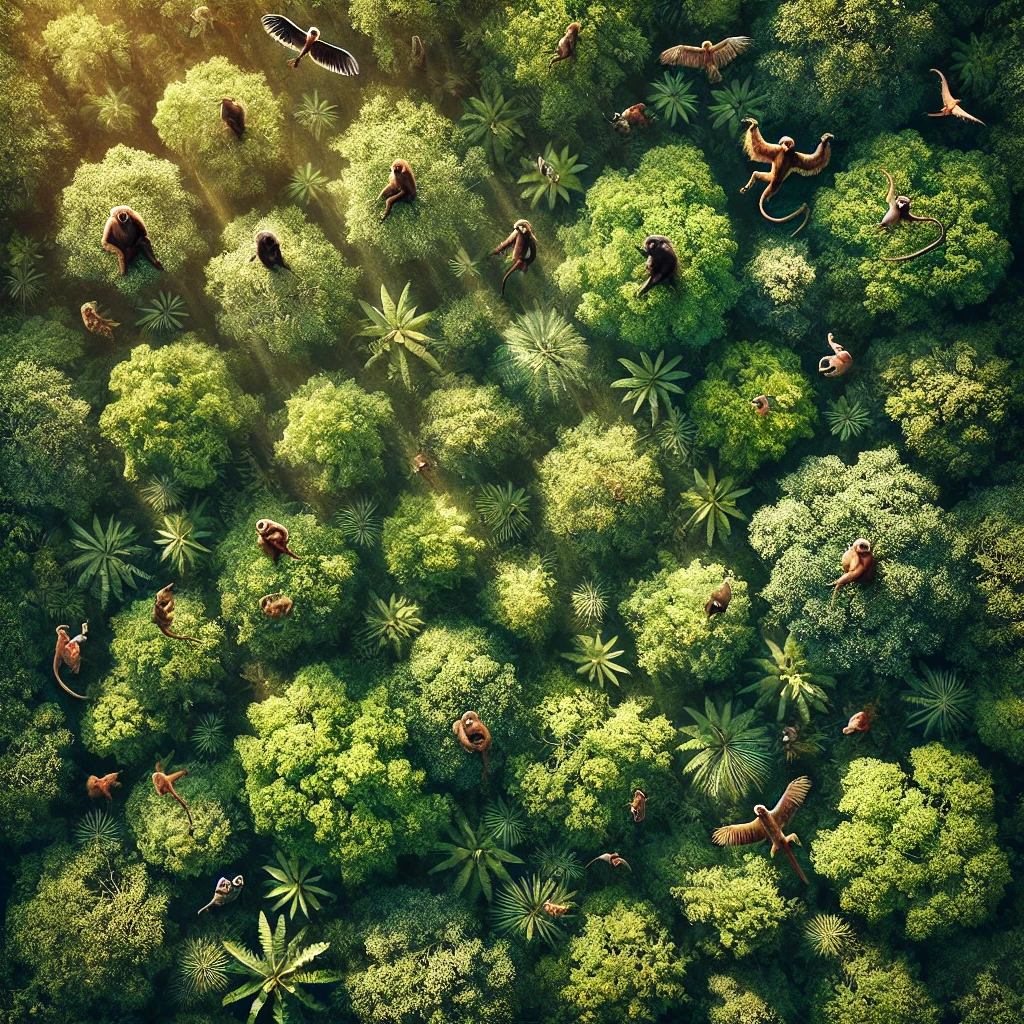Insects, despite their diminutive size, wield a tremendous influence on our planet’s ecosystems and human societies. From pollinating crops to serving as sustainable protein sources, these small creatures play roles that are often overlooked yet essential for life as we know it.
Diversity in Form and Function
Insects are incredibly diverse in their forms and functions, with over a million species identified and possibly millions more awaiting discovery. They range from the minuscule fairyflies measuring just 0.2 millimeters to the hefty Goliath beetles that can grow up to 11 centimeters in length. This vast diversity allows insects to occupy nearly every habitat on Earth, from tropical rainforests to desolate deserts and even the icy expanses of the Arctic.
Each species has adapted uniquely to its environment, showcasing a remarkable array of colors, shapes, and behaviors. The adaptations of insects have enabled them to become masters of survival, utilizing camouflage, mimicry, and defensive mechanisms such as stings and chemical deterrents to evade predators.
Ecological Roles: Guardians of Balance
Insects are integral to the balance of ecosystems worldwide. One of their most crucial roles is that of pollinators. Bees, butterflies, moths, and other pollinating insects facilitate the reproduction of flowering plants, including many of the crops that sustain human populations. Without their pollination services, global food production would plummet, leading to widespread ecological and economic repercussions.
Furthermore, insects are essential components of food chains, serving as prey for numerous species of birds, mammals, reptiles, and amphibians. Their ability to break down organic matter also makes them vital contributors to nutrient cycling and soil health. Insects like ants and termites are ecosystem engineers, constructing elaborate nests and burrows that aerate soil and regulate water flow.
Economic and Agricultural Significance
Beyond their ecological roles, insects significantly impact human societies. Agriculture, in particular, relies heavily on beneficial insects for pollination and pest control. Conversely, pests such as locusts, aphids, and beetles can devastate crops, leading to billions of dollars in losses annually. Efforts to manage these pests include biological control methods that utilize natural enemies of pests, reducing reliance on chemical pesticides.
Insects also offer promising solutions to global challenges. The growing interest in entomophagy, or insect consumption, as a sustainable protein source highlights their potential to alleviate food insecurity and reduce the environmental footprint of agriculture. Insects are highly efficient converters of organic matter into protein, requiring significantly less feed, water, and land than traditional livestock.
Cultural Significance and Inspiration
Throughout history, insects have captured the human imagination and inspired cultural expressions. They appear in folklore, mythology, and art across diverse civilizations. The ancient Egyptians revered scarab beetles as symbols of rebirth and transformation, while the Maya depicted bees in their artwork, recognizing their industrious nature.
In modern times, insects continue to influence art, literature, and even technology. Their intricate anatomies and behaviors have inspired innovations in robotics and materials science, leading to the development of miniature drones and adaptive materials that mimic insect capabilities.
Conservation Challenges
Despite their ecological and economic importance, many insect species face threats from habitat loss, climate change, pollution, and invasive species. Declines in pollinator populations, in particular, have raised concerns about food security and biodiversity loss. Conservation efforts are crucial to safeguarding insect diversity and the services they provide.
Initiatives range from habitat restoration and pesticide reduction to citizen science projects that monitor insect populations. Public awareness campaigns also play a vital role in promoting appreciation for insects and fostering conservation-minded behaviors.
Looking Ahead: Research and Innovation
Advances in scientific research are shedding light on previously unknown aspects of insect biology and behavior. Technologies such as genomics and remote sensing are enhancing our understanding of insect populations and their responses to environmental change. This knowledge is essential for developing effective conservation strategies and sustainable practices.
Furthermore, ongoing research into insect-derived products and technologies holds promise for addressing global challenges. From biodegradable plastics to medical treatments inspired by venomous compounds, insects are proving to be valuable sources of innovation and inspiration.
Conclusion
In conclusion, insects are not merely small creatures buzzing around our gardens; they are indispensable components of Earth’s ecosystems and economies. Their diversity, ecological roles, and cultural significance underscore their importance to human well-being and the health of our planet. As we navigate the complexities of environmental stewardship and sustainable development, understanding and appreciating the small but mighty world of insects will be increasingly crucial. By protecting their habitats, promoting sustainable practices, and harnessing their potential for innovation, we can ensure a harmonious coexistence with these remarkable creatures.
